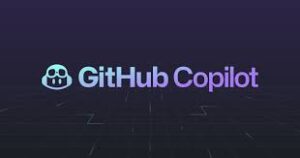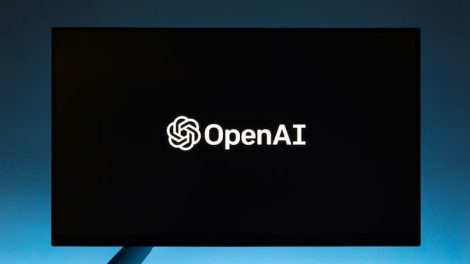GitHub has made bold claims regarding its AI-powered tool, Copilot, suggesting that it significantly improves code quality and productivity for developers. As a key player in the AI-assisted coding market, GitHub asserts that Copilot enhances programming efficiency and reduces repetitive tasks. However, as the adoption of AI-driven tools grows, there is an ongoing debate about whether these innovations are genuinely benefiting developers in measurable ways or creating new challenges.

This article takes an in-depth look into Copilot’s functionality, its impact on code quality, and the broader implications of AI tools in software development. By analyzing industry reports, user experiences, and case studies, you will gain a clearer picture of whether AI coding tools deliver on their promises.
What GitHub Copilot Claims to Offer
GitHub describes Copilot as a productivity-enhancing AI assistant for developers, built on OpenAI’s Codex model. It is designed to integrate seamlessly into popular coding environments like Visual Studio Code, IntelliJ, and Neovim. The tool suggests code snippets, autocompletes lines, and even generates entire functions based on comments or prompts. By doing so, GitHub aims to reduce the cognitive load on developers and speed up the software creation process.
GitHub has highlighted several benefits of Copilot, including improved code quality, fewer bugs, and enhanced efficiency in writing boilerplate code. These claims are supported by surveys, such as one conducted in 2023, where GitHub reported that 88% of developers felt more productive, and **74% believed Copilot helped them focus on more satisfying tasks.
Despite these assertions, questions remain regarding the tangible outcomes for developers, especially when considering the reliability and potential limitations of AI-generated code.
Understanding Code Quality and AI’s Role
Code quality is a critical metric in software development, encompassing aspects like readability, maintainability, and error prevention. For Copilot to genuinely enhance code quality, it must consistently provide accurate, efficient, and secure code recommendations.
Studies and anecdotal evidence suggest that while Copilot can expedite routine coding, it may not always produce the most optimized or secure solutions. Developers have noted that AI-generated code often requires thorough review and refinement to ensure it aligns with project requirements and best practices. For instance, Copilot might suggest code that works but is not scalable or adheres poorly to established coding conventions.
Additionally, there are concerns about the security implications of relying on AI tools. Copilot has been observed to occasionally suggest code snippets that include outdated or vulnerable patterns, which could introduce risks into a project. For developers working in sensitive industries like finance or healthcare, the stakes are particularly high.
The Productivity Paradox
While Copilot undoubtedly speeds up certain tasks, its overall impact on productivity is nuanced. Developers who are experienced and familiar with their tech stacks often report that Copilot accelerates routine tasks like writing boilerplate code, formatting data structures, or generating documentation. However, newer programmers may struggle with over-reliance on AI-generated suggestions, potentially hindering their learning process.
There is also the question of how much time developers spend verifying and debugging AI-generated code. If Copilot introduces subtle errors or inefficient patterns, the time saved during initial coding may be offset by increased debugging efforts. This raises a critical question: Does Copilot truly improve productivity, or does it shift the burden to other stages of the development lifecycle?
Real-World Case Studies
To better understand Copilot’s effectiveness, let’s examine how it has been implemented in real-world scenarios:
- Enterprise Adoption – Some large organizations have integrated Copilot into their workflows to streamline development processes. Reports from such teams indicate mixed results—while junior developers benefit from the tool’s suggestions, senior developers often find the generated code redundant or unhelpful.
- Open Source Contributions – In open-source projects, Copilot has proven useful for generating documentation and tests. However, its ability to contribute meaningful features depends heavily on the complexity of the project and the clarity of the prompts provided.
- Educational Settings – Coding bootcamps and universities experimenting with Copilot have observed an increase in student output, but there are concerns about students bypassing the learning process by overly relying on AI-generated solutions.
Challenges and Limitations
Several challenges limit the widespread adoption and effectiveness of AI coding tools like Copilot. These include:
- Context Awareness – Copilot operates within the scope of the immediate codebase but lacks a deep understanding of broader project architecture or business requirements.2.
- Data Privacy: Developers working with proprietary or sensitive codebases often express concerns about sharing their code with AI models hosted on external servers.3.
- Bias and Legal Risks: Copilot occasionally generates code that inadvertently reproduces copyrighted material or reflects biases present in its training data. These issues raise legal and ethical questions for users and organizations.
The Future of AI in Coding
As AI tools evolve, their role in software development is expected to expand. Future iterations of Copilot and similar tools may incorporate greater context awareness, improved error detection, and enhanced integration with CI/CD pipelines. These advancements could address current limitations, making AI an indispensable asset for developers.
However, for these tools to achieve their full potential, they must strike a balance between automation and developer control. The focus should remain on augmenting human capabilities rather than replacing critical thinking and creativity.
GitHub Copilot represents a significant milestone in the integration of AI into software development, offering tangible benefits for routine coding tasks. However, its impact on code quality and productivity is far from universally positive. For developers, the key lies in using Copilot judiciously—leveraging its strengths while remaining vigilant about its limitations. As the industry continues to explore the possibilities of AI, one thing is clear: tools like Copilot are reshaping how software is created, but their success depends on how effectively they are integrated into human workflows.










Add Comment